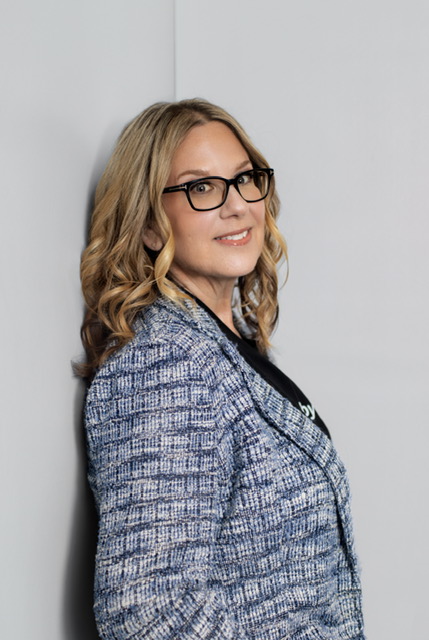The Transform Dialogues: People, Culture & The Future of Work with Kamaria Scott
.avif)
The Transform Dialogues: People, Culture & The Future of Work with Kamaria Scott
Kamaria Scott joined Transform to share practical, human-centered strategies for closing performance gaps by equipping managers with the routines, clarity, and tools they need to lead reliably. In a focused conversation, Kamaria described the Manager Momentum Operating System she uses with clients, explained why managers are the leverage point for both performance and wellbeing, and outlined exactly how AI can augment (but not replace) managerial judgment. The session delivered a highly actionable playbook for leaders who want measurable manager impact—fast.
Session Recap
Kamaria opened by describing her background as an industrial-organizational psychologist and founder of Enetic, a boutique consulting firm that helps managers lead high-performing teams while preserving human-centered culture. She framed the core problem: many organizations try to “fix” performance with training alone, but training without operating routines and system supports rarely sticks.
She introduced the Manager Momentum Operating System—an OS of four loops: Diagnose (identify the real constraint), Enable (skills, tools, and clarity), Nudge (environmental cues that make the right behavior easy), and Reinforce (coaching, feedback, and consequences tied to outcomes). Kamaria argued managers are the critical translators of strategy into daily work and that equipping them with an OS avoids the classic trade-off between human care and business delivery.
Kamaria walked through common misdiagnoses (confusing clarity/friction for motivation or over-indexing on individual capability when the system is at fault) and urged leaders to redesign the manager role for focus—too many responsibilities without support leads to overload. She described three manager behaviors that move performance most: Clarity, Cadence, and Coaching. For measurement, she recommended leading indicators tied to the OS (goal health, 1:1 quality, decision cycle time, regrettable attrition, internal mobility).
On AI, Kamaria was pragmatic: AI can be a force multiplier (draft feedback, summarize 1:1 notes, surface team risks, nudge follow-ups, help de-bias notes), but it should augment not replace managerial judgement. Her 90-day sprint playbook distilled the approach: pick one business outcome, diagnose the constraint, stand up the OS (cadence + enablement + nudges), and reinforce with coaching—stacking small wins that compound into momentum.
Key Takeaways
- Managers are the leverage point: equip them and you’ll move performance and wellbeing together.
- An operating system (routines + cadences + decision rules) is how behavioral change sticks—not one-off training.
- Diagnose before you prescribe: clarify whether the barrier is skill, clarity, process, incentive, or workload.
- Three high-impact manager behaviors: Clarity → Cadence → Coaching. Focus there first.
- Measure leading indicators (goal health, 1:1 completion/quality, decision cycle time) rather than only engagement.
- AI is an amplifier: use it to save time (drafts, summaries, nudges) while keeping humans in the judgment loop.
- Design manager roles for focus: reduce conflicting responsibilities or provide the OS to support them.
- Development + enablement = impact: pair training with playbooks, templates, and live coaching.
- Start with a 90-day sprint: pick one outcome, diagnose, implement the OS, and iterate.
- Inspect mechanisms, not personalities: ask about cadences, decisions, and learnings to get leverage without micromanaging.
Final Thoughts
Managers can be the single greatest multiplier of organizational performance when we design the environment for their success. The combination of clarity, consistent operating rhythms, practical enablement, and disciplined reinforcement produces measurable change. Treat manager development as an operating design challenge—build routines and nudges into the flow of work, measure leading indicators, and use AI sensibly to free managers for the human work of judgment and coaching.
Program FAQs
- What’s the Manager Momentum Operating System (briefly)?
Four loops: Diagnose → Enable → Nudge → Reinforce. It’s the set of routines and decision rules that turn training into sustained behavior.
- How do I know whether a performance problem is skill vs. system?
Ask: Are goals clear? Is the process broken? Are incentives aligned? Is workload reasonable? If answer is “no” to clarity/process/incentives, it’s a system issue—not just skills.
- What are three immediate manager behaviors to prioritize?
Clarity (goals & success criteria), Cadence (regular 1:1s and operating reviews), Coaching (timely, specific feedback linked to outcomes).
- What leading metrics should we track for manager effectiveness?
Goal completeness/quality, 1:1 completion and coaching quality, decision cycle time, goal attainment, regrettable attrition, internal mobility.
- How do we pair training so it actually changes behavior?
Combine training with playbooks, templates, role-play, live coaching, nudges inside tools they already use, and aligned recognition/promotions.
- How can AI help managers safely?
Use AI to draft feedback, summarize 1:1s, surface themes/risks, automate timely nudges, and de-bias notes. Keep humans in the loop for context and values.
- What’s a practical 90-day sprint to close a performance gap?
Pick one outcome, diagnose constraints, stand up OS (clarify metrics, set cadence, enable skill/tool), add nudges, and coach to reinforce—measure weekly.
- How do execs empower managers without micromanaging?
Inspect the operating system (cadence, decision logs, learning loops) and the data it produces—don’t inspect personalities or day-to-day tasks.
- If resources are tight, how should we prioritize manager work?
Do less with less: pick 2–3 high-impact manager behaviors you’ll resource, make trade-offs explicit, and communicate focus across the org.
- What’s one fast win to get manager momentum started?
Standardize a 1:1 agenda and a short decision log template, require weekly 1:1s for leaders, and add a simple nudge (calendar reminder + brief agenda) — then coach to quality.
All right. We are joined here for the Transform Dialogues live at Transform part of this series where we are trying to dig into the things that matter in the world of people strategy, culture and the future of work. I am your host and we have a very special guest for this session. We’re here with Kamaria Scott, and, uh, we’re very lucky to have you here with us. Thanks for being here.
Thank you. Thank you so much for having me. I’m excited to be here and to be part of Transform. It’s always a great place to connect with people who care deeply about the way we work and the people who make that work happen.
To kick things off, I’d love for you to introduce yourself. Tell us a bit about your background and what you’re focused on today.
Absolutely. I’m an industrial‑organizational psychologist by training and by practice. Most of my career has been in the space of performance—really closing performance gaps for organizations by equipping people leaders to lead high‑performing teams. I’m the Founder and CEO of Enetic, a boutique consulting firm that improves the performance of people leaders through development enablement, performance consulting, and coaching. My core focus is helping managers become the kind of leaders who can consistently get great outcomes through their people while also maintaining a healthy, human‑centered culture.
When you talk about closing performance gaps, what does that look like on the ground? Where do you typically start?
I often start in the messy middle—with managers. Managers are the leverage point. They translate strategy into day‑to‑day behavior. They hold the tension between people’s needs and the organization’s goals. And they’re often under‑supported. If you want consistent performance, you have to equip managers with clarity, tools, and operating rhythms so they can lead intentionally instead of reactively.
Say more about that tension—between people needs and org goals.
Managers have a duty of care for their direct reports—the human side. That means creating psychological safety, ensuring clarity, giving feedback, removing barriers, supporting growth. But they also have a duty to the organization—to deliver outcomes, align to the mission, steward resources. When you don’t equip managers to hold both duties well, you either get high human cost with low performance, or you get short‑term output with long‑term burnout and attrition. Neither is sustainable.
You’ve built something you call the Manager Momentum Operating System. What is it and why “operating system”?
It’s an OS in the sense that it’s the set of routines, cadences, and decision rules that keep a team running. It has four loops: Diagnose (what’s the real performance problem?), Enable (skills, tools, clarity), Nudge (environmental cues and prompts that make the right behavior easy), and Reinforce (coaching, feedback, and consequences tied to outcomes). Most companies throw training at managers. Training without an operating system rarely sticks. You need mechanisms.
What are some common misdiagnoses you see when performance dips?
We over‑index on individual capability and under‑index on system constraints. Is it a skill issue—or is the goal ambiguous, the process broken, incentives misaligned, or workload unreasonable? Another misdiagnosis is calling a motivation problem what is actually a clarity or friction problem. People don’t wake up wanting to underperform. Usually, something in the environment is getting in the way.
Let’s talk middle managers—lots of debate about whether this layer is bloated, crucial, or both.
Middle managers are crucial. They’re translators and integrators. If you cut them without redesigning how work is coordinated, you create bottlenecks and overload. But the role needs to be designed for focus. We ask managers to be super‑ICs, project managers, HR partners, culture keepers, and strategists—then blame them when they juggle poorly. Clarify the manager job and equip it with an OS.
Where does AI productively fit into manager work?
AI can be a force multiplier—drafting feedback, summarizing 1:1 notes, prepping agenda prompts, surfacing risks across a team, de‑biasing performance notes, or nudging managers at the right moment (for example, “It’s been 14 days since feedback for X”). But AI should augment judgment, not replace it. The human parts—context, values, tradeoffs—still sit with the manager.
If you had to pick three manager behaviors that move performance the most, what are they?
Clarity (goals, roles, success criteria). Cadence (consistent 1:1s, operating reviews, decision logs). Coaching (timely feedback and development conversations linked to outcomes). If a manager reliably does those three, performance goes up almost every time.
How do you measure manager effectiveness beyond engagement scores?
Use leading indicators tied to the OS: percent of team with up‑to‑date goals and success measures; 1:1 completion and quality; cycle time and quality for decisions; goal attainment by quarter; growth moves from 70/20/10 learning plans; regrettable attrition; internal mobility. Numbers don’t tell the whole story, but they keep the system honest.
A lot of organizations say they “develop managers” but don’t see impact. What’s missing?
Development without enablement doesn’t change performance. Give managers playbooks, templates, and shared language. Pair training with live practice and coaching. Embed nudges into tools they already use. And align consequences—promotion, recognition, and rewards—to the behaviors you expect. When the environment supports the behavior, managers follow through.
What does “closing performance gaps” look like over a 90‑day sprint?
Pick one business outcome that matters. Diagnose the constraint. Stand up the OS: clarify success metrics, set the cadence (1:1s, weekly review, monthly operating review), enable the key skill or tool, nudge the behavior, and reinforce with coaching. Don’t boil the ocean—stack small wins. Momentum compounds.
Any advice for executives who want to empower managers without micromanaging them?
Set the what with ruthless clarity. Resource the how. Inspect the OS, not the personality. Ask, “What cadence is in place? What decisions were made and why? What did we learn this week?” When you inspect the mechanism, you get leverage without hovering.
Final thoughts?
Managers can be the most powerful force for good in an organization when we design for their success. Give them clarity, mechanisms, and coaching—and watch both performance and wellbeing rise.
Thank you so much, Kamaria. This was fantastic—practical, actionable, and very human. Appreciate you joining us at Transform.
Thank you for having me. Loved the conversation and the energy at Transform.


.jpg)



.jpg)




